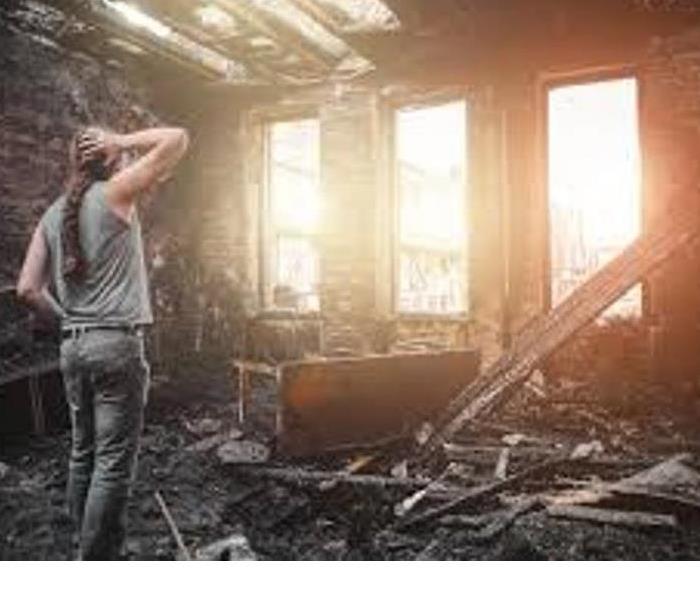What To Do After a Residential Fire
8/31/2020 (Permalink)
It’s hard to imagine the damage and destruction a fire can leave in its wake. Even small ones can require extensive repair and restoration.
Hopefully, you’ll never have to deal with picking up the pieces after a damaging fire. But unfortunately, we won’t all be so lucky. As recent as 2018, there were more than 1.3 million fires in America, resulting in $25 billion in losses. On average, a residential fire occurs every 87 seconds in the United States.
It’s important to be prepared. Here are three steps you can take toward fire damage repair and restoration after a fire:
- Beware of health hazards
- Consider smoke damage
- Call a fire damage restoration company
1. Beware of Health Hazards
Some people mistakenly believe that once a fire is put out, the danger is gone. However, homes that have suffered from fire damage can contain many hidden health hazards.
House fires typically release harmful toxins into the air. These are harmful to breathe in; some may even cause cancer. You shouldn’t re-enter your home after a fire until the fire department declares that it’s safe to do so.
If you have to re-enter your home for whatever reason, make sure you’re wearing appropriate protective gear. Keep in mind that if you have to board up your home after a fire, it will take even longer for those toxins to exit the house.
You’ll also need to make safe decisions about which items in your home you can keep and which ones you need to let go of. Think first about the essentials:
- Food: Throw away any open containers of food in your cupboards and cabinets. If any food has been exposed to heat, water, or smoke, then throw it away, regardless of if it’s open or not. If your refrigerator lost power during or after the fire, then throw away all of the food in your fridge.
- Medicine: Carefully inspect any medicine you’re hoping to keep. If there are any signs of smoke damage or fire extinguisher residue, it’s best to throw it away.
- Clothing: Throw away any clothing that has been burned or has soot on it. Remember, some toxins can enter the body through the skin.
2. Consider Smoke Damage
Your first priority after a fire is making sure everyone you love is safe. But after everyone is accounted for, what will you focus on next?
Your thoughts may turn to your possessions, especially any valuables or keepsakes you’re hoping to salvage. As you learn more about the extent of the damage, you may consider what essentials you’ll need until your home is restored.
It may take a while before you start thinking about your home itself. Don’t delay for too long. Smoke damage sets in quickly and needs to be handled in a timely manner.
Smoke particles can seep into your walls, floors, curtains, furniture, bedding, and more, allowing the smell of smoke to linger for months after the fire. The sooner you address smoke damage, the more likely you won’t have to deal with long-lasting or permanent smoke damage issues.
3. Call a Fire Damage Restoration Company
Most people grow up practicing fire drills so they know what to do during a fire, but no one practices what to do after a fire. SERVPRO of Kendall County has the skills, experience, and training to help you restore your home.





 24/7 Emergency Service
24/7 Emergency Service
